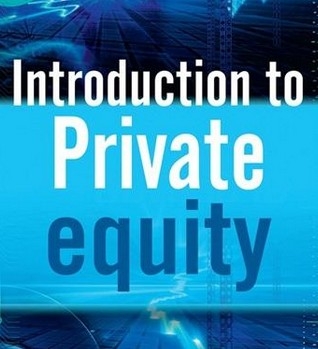(单词翻译:单击)

On Friday evening in Davos, Paul Kagame, Nouriel Roubini and Carlos Ghosn discussed the next steps for emerging markets. Do you want to know what their predictions were?
上周五晚,保罗•卡加梅(Paul Kagame)、鲁里埃尔•鲁比尼(Nouriel Roubini)和卡洛斯•戈恩(Carlos Ghosn)在达沃斯(Davos)讨论了新兴市场的前景。你想知道他们的预测结果吗?
EM private equity investors don’t. “We don’t get our EM news here from public debates,” says Paul Fletcher, from PE firm Actis, at Davos. His colleague and former employee Sev Settivetpillai agrees: “You need to be on the ground yourself to understand what’s happening.”
新兴市场私人股本的投资者不想。私人股本公司英联投资(Actis)的保罗•弗莱彻(Paul Fletcher)说:“我们不会从公共辩论中获取有关新兴市场的消息。”他的同事、前员工塞夫•维蒂维特皮莱(Sev Vettivetpillai)认同这一点:“你必须置身新兴市场,才能了解那里正在发生的事情。”
However, they didn’t mind sharing their view on EMs.
然而,他们不介意分享自己对于新兴市场的观点。
“There are many headlines about the Brics, but the more interesting markets are often outside of this bloc, and they often have better governments” says Sev Settivetpillai of Abraaj, which has $7.5bn in assets under management across EMs.
现供职于Abraaj资本的塞夫•维蒂维特皮莱说:“媒体头条里有好多金砖国家(Brics)的消息,但更令人感兴趣的市场往往是其他国家,那些国家的政府通常治理水平更高。”Abraaj资本管理的新兴市场资产总额为75亿美元。
Rather than using GDP growth as indicator, he prefers to look at the regions where sustained growth might come from consumption, and which from infrastructure. In that regard, two groups of countries are now interesting. One is the Pacific Alliance, which includes Chile, Peru, Colombia, and Mexico. The other is sub-Saharan Africa, most importantly Ghana, Uganda, Tanzania, Kenya, Mozambique and Nigeria.
他不愿意使用国内生产总值(GDP)增长率作为指标,而关注由消费或基础设施领域推动经济可持续增长的地区。按此标准,目前有两组国家引人注目。一是太平洋联盟(Pacific Alliance),包括智利、秘鲁、哥伦比亚和墨西哥。二是撒哈拉以南非洲地区,最重要的是加纳、乌干达、坦桑尼亚、肯尼亚、莫桑比克和尼日利亚。
Both have either developed a decent infrastructure, or have the resources to fund such projects – which are interesting in themselves for PE. And because of their steady income from natural resources, they have a growing middle class.
这两组国家要么已建立起相当完善的基础设施,要么有财力开展基建项目,这两点正是令私人股本公司感兴趣的。另外,由于自然资源提供了稳定的收入,这些国家的中产阶层正不断壮大。
“The PA has a GDP size equal to that of Brazil, but its growth is double, and its infrastructure is ahead of that of other countries in the region,” Vettivetpillai comments. “In addition, the share of consumption in this GDP growth is 60 per cent. It’s the highest of the EMs I work in, and I expect it continue.”
“太平洋联盟的GDP总量与巴西相当,但增速是巴西的两倍,而且基础设施水平也领先于地区其他国家,”维蒂维特皮莱评论称,“此外,消费对其GDP增长的贡献率达到了60%,是我开展业务的新兴市场国家中最高的,并且我预计这个比例会保持下去。”
In sub-Saharan Africa, he sees a two-tier consumption story: the upper class on the one hand, and the emerging lower middle class, “which is four times bigger”. These consumer groups ensure that consumption will continue to account for 50 per cent of GDP growth in those countries.
在撒哈拉以南非洲地区,他认为消费群体分两个层次:上层群体和不断壮大的下层中产阶层,“后者是前者人数的四倍”。这些消费群体可以保证,在这些国家里,消费对GDP增长的贡献率将继续维持在50%。
Behind the curve is China. The Chinese investment vs consumption led growth question is well known. In China, according to Vettivetpillai, consumption accounts for only 35 per cent to 38 per cent of GDP growth, and infrastructure for close to 50 per cent.
相比之下,中国已落后。中国经济增长中投资和消费贡献率的对比问题,已是众所周知。维蒂维特皮莱表示,消费对中国GDP增长的贡献率仅为35%至38%,基础设施的贡献率接近50%。
Yet China remains a draw for PE investors, says Fletcher. “The environment in the market place in China will be at least as positive if not more,” he says. The reason? “We’re long term investors. Cyclical events, or the lack of them, matter more than immediate GDP or consumption growth.”
但弗莱彻表示,中国仍是私人股本投资者的关注重点之一。他说:“中国的市场环境即便不比其他国家更好,起码也将毫不逊色。”原因何在?“我们是长线投资者。周期性事件发生与否比当前的GDP增幅或消费增幅更重要。”
That is good news for China, which has a long term vision and the means to implement it, but bad news for India and Brazil, who seem to have a lack of exactly that long term perspective and stability. “I’m neutral about India, wanting to be positive,” says Fletcher, whose Actis has a long history in India. “And I’m cautious on Brazil.”
这对中国来说是好消息,中国制定了长期愿景,并具备实现愿景的手段。这对印度和巴西是坏消息,它们似乎恰恰缺乏长期视角和稳定性。弗莱彻说:“我对印度既不乐观也不悲观,希望能够乐观起来。我对巴西持谨慎态度。”
It shows that the “slowdown of emerging markets” predicted for next year, is nothing more than some “background information” for PE investors. “GDP growth figures are tailwinds, they add to your thesis,” says Vettivetpillai. “You don’t base your investments on GDP growth,” confirms Fletcher. “You can do good investments in low growth countries.”
这表明,“新兴市场预计明年增长将放缓”的预测给私人股本投资者提供的不过是“背景信息”而已。维蒂维特皮莱说:“GDP增长率数字只是锦上添花,可以加强投资依据。”弗莱彻也强调:“我们不会把投资决策建立在GDP增长率上,我们在增长率低的国家也可以进行回报丰厚的投资。”
In that regard, poor performance of certain EMs can even be good news for the EM PE investors. The weak South African rand, for example, makes it less expensive to buy SA companies. “We’re a bit like Warren Buffett,” says Fletcher. “We like to buy low. But of course, unlike Buffett, we do sell after a while.”
从这方面讲,某些新兴市场国家的糟糕表现,对新兴市场私人股本投资者来说甚至可能是利好。比如,南非兰特汇率疲软,就使得收购南非企业的代价降低。弗莱彻说:“我们有点儿像沃伦•巴菲特(Warren Buffett)。我们喜欢逢低买入。但当然,我也不同于巴菲特,我们持有一段时间之后就会卖出。”


